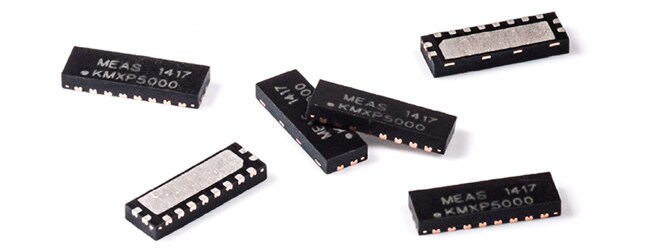
Magnetoresistive Sensors for Precise, Contactless Measurement
Magnetoresistive (MR) sensors are magnetic sensors that provide precise, contactless detection of changes or disturbances in magnetic fields for conversion into an electrical signal. These sensors are highly sensitive and offer a contactless solution that makes them suitable for applications that require precise and reliable measurements.
Magnetoresistive sensors offer significant advantages in environments where reliability and durability are paramount. MR sensors are dependent on the magnetic field direction and almost independent of the actual magnetic field strength. Their non-contact operation minimizes temperature and aging effects and enables long-term performance even in challenging conditions such as extreme temperatures, moisture, or vibration. Due to unique design geometries, our MR sensors are ideal for use in applications where strong ambient and stray magnetic fields exist.
The availability of various MR technologies such as AMR, GMR, and TMR, allow engineers to tailor solutions to specific application needs. From improving traffic safety to enabling high-precision industrial automation, MR sensors continue to drive innovation in sectors that demand accurate, robust, and maintenance-free magnetic sensing.
Magnetoresistive Sensor Types
Typical Characteristics
| Characteristic | Anistropic Magnetoresistive (AMR) Sensors | Giant Magnetoresistive (GMR) Sensors | Tunnel Magnetoresistive (TMR) Sensors |
|---|---|---|---|
| Working Principle | Change in resistance due to the angle between magnetization and current flow | Large change in resistance due to electron spin alignment in multilayer structures | Quantum tunneling effect through an insulating barrier between ferromagnetic layers |
| Sensitivity | Moderate | High | Very High |
| Dynamic Range | Moderate | Wide | Very Wide |
| Temperature Stability | Moderate | High | Excellent |
| Power Consumption | Low | Low | Very Low |
| Size | mm | μm - mm | μm |
| Industry Examples | |||
| Automotive | Electronic power steering / brakes | Engine timing | Battery management, gear positioning |
| Industrial Automation | Conveyor speed monitoring | Non-contact positioning | Precision motion control |
| Consumer Electronics | Smartphones, gaming controllers | Hard disk drives, wearable devices | Smartphone augmented reality |
Featured Sensors
KMXP Series
High Resolution AMR Position Sensor
- Measures linear and rotary position by using a magnet attached to the moving part
- Contactless measurement with an accuracy of 10-50µm in ranges from 1 – 5mm
- DFN package is ideal for any PCB assembly process
- EMC proof
- Three magnetic pole pitches – the smaller the pole pitch, the smaller the air gap
- Operating temperatures up to 150°C
- Available in perpendicular/flat solderable versions
- Small size – suitable for constricted applications
- Proven performance in dirty, dusty, or oily environments


High Resolution Wheel Speed Sensor
GMR Technology
- Up to 4x higher resolution than a traditional wheel speed sensor
- Simplified system integration utilizing GMR technology
- Large air gap
- Resistant to stray magnetic fields
- ASIL B(D) per ISO26262










